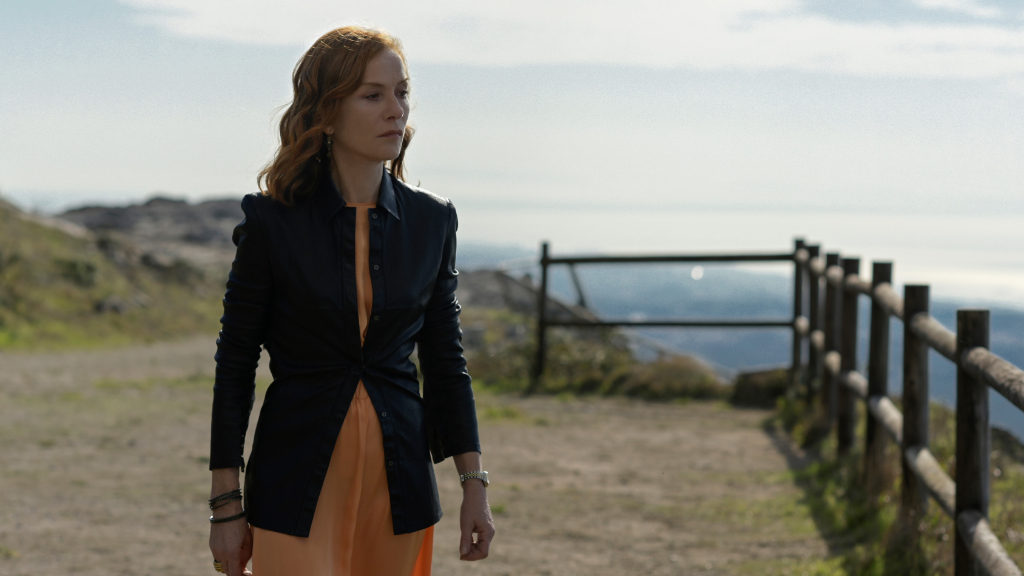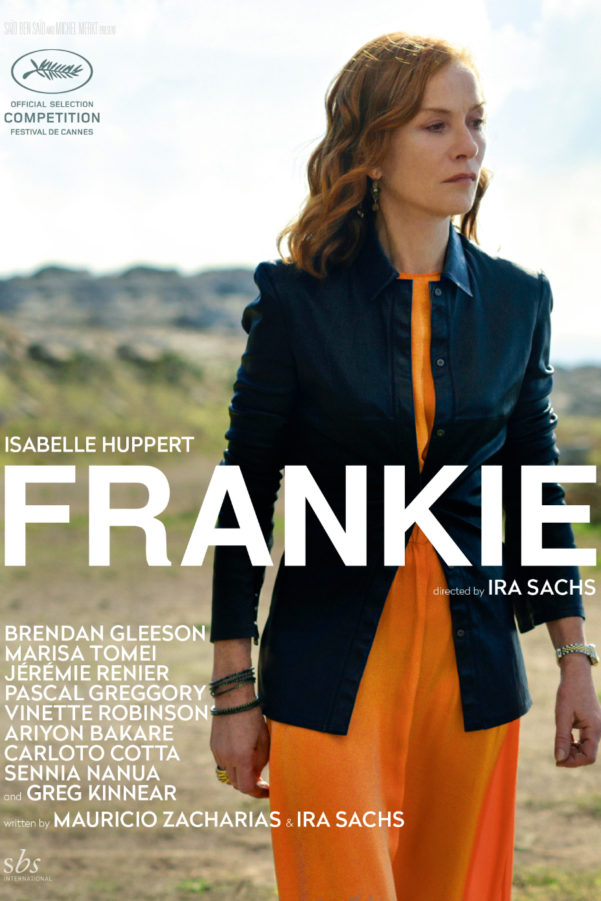Frankie

Rich people on bad holidays: a tale as old as time. The stark, bleached open to Frankie suggests some sort of prelapsarian bliss, as if money anxieties and hidden infidelities constitute the primordial state of family relationships. Ira Sachs’s work trades on subtlety: people glance, shuffle uncertainly, leave things unsaid. But there’s pointedness to his latest film, a tale of wealthy people with slightly different degrees of wealth. Impending death really focuses the mind on inheritance and closure, on trampling regrets.
In her usual frank, indomitable way Isabelle Huppert plays the titular protagonist, a famous actress who gathers together her fragmented family from multiple past lives and love affairs, a cross-stitch of dwindling and dormant desires. Frankie looks to the edge of death, her cancer returned with fortitude and relentlessness. She declines treatment so as to live out her final days without much pain and with few physical symptoms, suggesting a dubious Hollywood transformation of illness, but one that here appears apt given the character’s natural haughtiness and splendour. She will go out on her terms.
The setting is Sintra, Portugal. Luscious scenery offers a pleasing backdrop, if mostly shot without curiosity or intrigue. Undulating hills surround the cobbled streets, along which marriage fractures and lust dissipates. Frankie’s family and friends are a melting pot, multinational and multicultural, an advert for the globalised world, a satire of geography, an incidental reminder of when tectonic plates held meaning.
They include Jimmy, Frankie’s sensitive and ursine second love (Brendan Gleeson); her loyal make-up assistant (Marisa Tomei); her son and first husband (Jérémie Renier and Pascal Greggory); and Jimmy’s daughter and her new money partner (Vinette Robinson and Ariyon Bakare). The products of Ireland, America, France and Britain lead to many passages of broken English and whispered French. These awkward linguistics function as a type of elite internationalism, one in which everyone – from young to old – speaks in much the same way.
The anticipation of grief suffuses almost all conversations, all actions. Those who know the diagnosis struggle to maintain normality. And those who do not know practice normality in the most grotesque, intrusive manner. What motivates the characters? To hire good lawyers, to wear the right cashmere jumper, to retrieve the expensive bracelet: financial concerns are a persuasive deterrent from finality, from accepting the end. Considerations of race and sexuality feed some responses, still cloaked in affluence, in custom and civility.
The ensemble cast meets the need for dramatic irony, and Greg Kinnear bumbles in usefully as an oafish outsider. But there’s something lacklustre and complacent in the narrative’s telling, a staged quality to dialogue exchanges that, while set up to confound tropes, isolates inadequacies in characterisation. Brecht gets a brief mention but it would be remiss to label this epic theatre.
Directors such as Joanna Hogg have shown that bourgeois woe abroad can produce fascinating cinema. To depict mundane bickering and aloof atmospheres is to indulge other worlds, to present and discard the universal. Here Sachs falls short. The final shot consists of a momentary tableau that shifts into moving silhouettes under twilight. Each figure ambles back in precisely timed formation, an admirable and technically adept illustration of blocking. You feel nothing.
Joseph Owen
Frankie does not have a UK release date yet.
Read more reviews from our Cannes Film Festival 2019 coverage here.
For further information about the event visit the Cannes Film Festival website here.
Watch the trailer and some clips from Frankie here:

























Facebook
Twitter
Instagram
YouTube
RSS